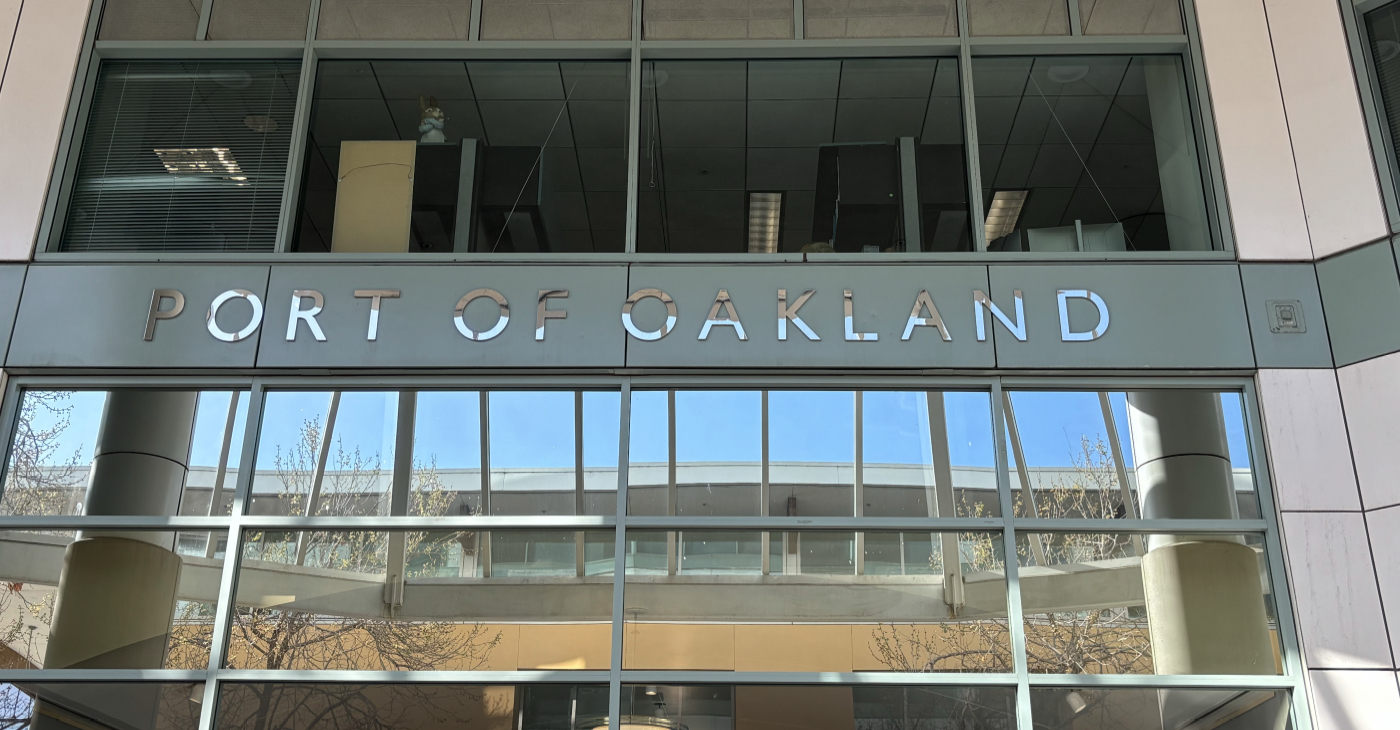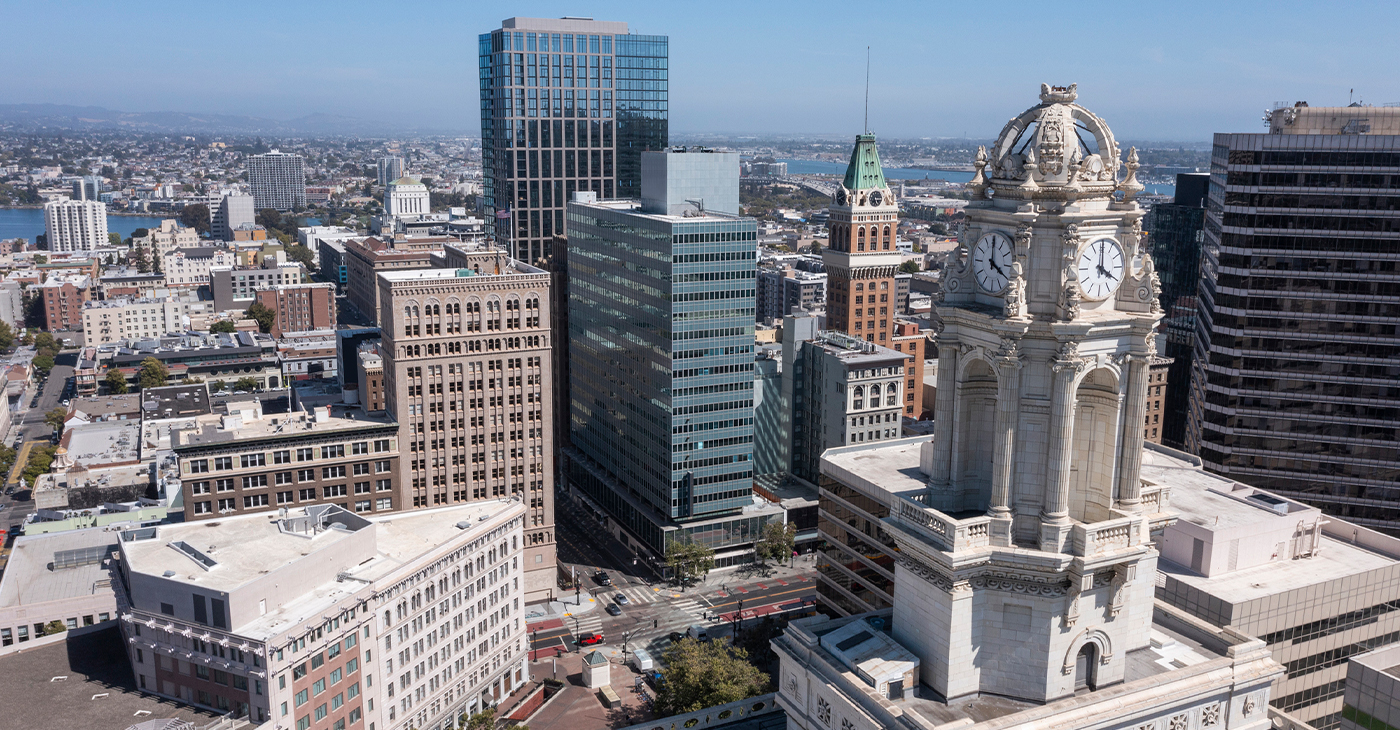Bay Area
Diversity Among Bay Area Elected Officials Improves, But Disparities Still Exist
Racial diversity among Bay Area elected officials increased during the 2020 election cycle, but new data shows wide disparities still exist across the region.

Racial diversity among Bay Area elected officials increased during the 2020 election cycle, but new data shows wide disparities still exist across the region.
The proportion of people of color holding top local offices increased from 26 percent in 2018 to about 34 percent after the 2020 elections, according to a report released this week by the Bay Area Equity Atlas.
Despite this increase, however, people of color remain highly underrepresented since they make up 60 percent of the total population, according to the report.
The same data shows white people are still overrepresented in the halls of power, accounting for 66 percent of officials elected to the region’s city councils, boards of supervisors and mayoral and district attorney’s offices, while making up just 40 percent of the population.
“A huge part of the reason why we put out the report is that representation matters, especially with all these difficulties we’ve seen arise over the past 17 months — the over-policing of BIPOC, violence against Asian elders, working class people and renters being left behind during the pandemic,” said Bay Area Equity Atlas associate Michelle Huang.
Huang, who co-authored the report with Bay Rising executive director Kimi Lee, said proportional representation doesn’t automatically lead to equitable policy making.
“But it is really important for local leadership to reflect the diversity of the community, especially communities that have been historically excluded from power,” she said.
In many cities and counties, however, the share of elected officials lags far behind population numbers.
For example, the share of Asian American elected officials has remained at about 10 percent for the past several years, but that’s far below the 26 percent of the Bay Area’s population who are Asian American.
Also, while Latinos now make up 13 percent of the region’s elected officials — up from 9 percent in 2018 — Latinos account for nearly 25 percent of the overall population, according to the report.
The report identifies 26 cities that still have zero people of color on their city councils and notes that while the proportion of Black elected officials increased from 6 percent to 8 percent across the region, 74 of 101 Bay Area municipalities still have no black city councilmembers.
“Across the region it seems like Black representation is on par with Black residents, but as we found, vast numbers of cities don’t have any Black representation and that’s astounding,” Huang said.
The report mentions several policy solutions that its authors believe would help people of color overcome racist, systemic barriers to voting and political participation, including publicly funding political campaigns and developing leadership programs for people of color, among other things.
One idea that’s already being implemented in several Bay Area cities involves switching from city-wide elections to district-based contests.
Out of the 20 cities from which sufficient data could be collected, 12 saw an increased presence of candidates of color after switching to district-based elections, which are typically less expensive and more easily accessible than city-wide elections.
For example, Livermore went from having no candidates of color before 2020 to having 50 percent in the 2020 election.
In Redwood City, where 18 percent of candidates were people of color in the 2015 and 2018 elections, 56 percent were people of color in the 2020 election and Half Moon Bay went from having no candidates of color to over a third of its candidates being people of color, according to the report.
“The early results are really promising,” Huang said.
To read the report, visit https://bayareaequityatlas.org/Electeds2021.
Also, on Sept. 9, the By Area Equity Atlas and Bay Rising will host a public webinar and panel discussion on the report’s findings. Panelists will include both authors as well as former Oakland Unified School District Board candidate Clarissa Doutherd, OUSD Board Director Shanthi Gonzales and Ellen Wu of Urban Habitat.
Register for the webinar at https://policylink.zoom.us/webinar/register/WN_mA9yAd2nQbuN3uvI5lq-ig.
Activism
Oakland Schools Honor Fred Korematsu Day of Civil Liberties
Every Jan. 30, OUSD commemorates the legacy of Fred Korematsu, an Oakland native, a Castlemont High School graduate, and a national symbol of resistance, resilience, and justice. His defiant stand against racial injustice and his unwavering commitment to civil rights continue to inspire the local community and the nation. Tuesday was “Fred Korematsu Day of Civil Liberties and the Constitution” in the state of California and a growing number of states across the country.

By Post Staff
Every Jan. 30, OUSD commemorates the legacy of Fred Korematsu, an Oakland native, a Castlemont High School graduate, and a national symbol of resistance, resilience, and justice.
His defiant stand against racial injustice and his unwavering commitment to civil rights continue to inspire the local community and the nation. Tuesday was “Fred Korematsu Day of Civil Liberties and the Constitution” in the state of California and a growing number of states across the country.
One OUSD school is named in his honor: Fred T. Korematsu Discovery Academy (KDA) elementary in East Oakland.
Several years ago, founding KDA Principal Charles Wilson, in a video interview with anti-hate organization “Not In Our Town,” said, “We chose the name Fred Korematsu because we really felt like the attributes that he showed in his work are things that the children need to learn … that common people can stand up and make differences in a large number of people’s lives.”
Fred Korematsu was born in Oakland on Jan. 30, 1919. His parents ran a floral nursery business, and his upbringing in Oakland shaped his worldview. His belief in the importance of standing up for your rights and the rights of others, regardless of race or background, was the foundation for his activism against racial prejudice and for the rights of Japanese Americans during World War II.
At the start of the war, Korematsu was turned away from enlisting in the National Guard and the Coast Guard because of his race. He trained as a welder, working at the docks in Oakland, but was fired after the bombing of Pearl Harbor in 1941. Fear and prejudice led to federal Executive Order 9066, which forced more than 120,000 Japanese Americans out of their homes and neighborhoods and into remote internment camps.
The 23-year-old Korematsu resisted the order. He underwent cosmetic surgery and assumed a false identity, choosing freedom over unjust imprisonment. His later arrest and conviction sparked a legal battle that would challenge the foundation of civil liberties in America.
Korematsu’s fight culminated in the Supreme Court’s initial ruling against him in 1944. He spent years in a Utah internment camp with his family, followed by time living in Salt Lake City where he was dogged by racism.
In 1976, President Gerald Ford overturned Executive Order 9066. Seven years later, the 9th Circuit Court of Appeals in San Francisco vacated Korematsu’s conviction. He said in court, “I would like to see the government admit that they were wrong and do something about it so this will never happen again to any American citizen of any race, creed, or color.”
Korematsu’s dedication and determination established him as a national icon of civil rights and social justice. He advocated for justice with Rosa Parks. In 1998, President Bill Clinton gave him the Presidential Medal of Freedom saying, “In the long history of our country’s constant search for justice, some names of ordinary citizens stand for millions of souls … To that distinguished list, today we add the name of Fred Korematsu.”
After Sept. 11, 2001, Korematsu spoke out against hatred and discrimination, saying what happened to Japanese Americans should not happen to people of Middle Eastern descent.
Korematsu’s roots in Oakland and his education in OUSD are a source of great pride for the city, according to the school district. His most famous quote, which is on the Korematsu elementary school mural, is as relevant now as ever, “If you have the feeling that something is wrong, don’t be afraid to speak up.”
Bay Area
Port of Oakland Commission Votes to Change Oakland Airport to ‘San Francisco Bay Oakland International Airport’
The Port of Oakland Commission voted unanimously to change the name of Metropolitan Oakland International Airport to San Francisco Bay Oakland International Airport at a commission meeting Thursday afternoon. The Port initially announced the name change on March 29, claiming that the change will attract more passengers and enhance the airport’s visibility. They contend that the airport often gets neglected by the public’s lack of knowledge of Oakland’s proximity to San Francisco.

By Magaly Muñoz
The Port of Oakland Commission voted unanimously to change the name of Metropolitan Oakland International Airport to San Francisco Bay Oakland International Airport at a commission meeting Thursday afternoon.
The Port initially announced the name change on March 29, claiming that the change will attract more passengers and enhance the airport’s visibility. They contend that the airport often gets neglected by the public’s lack of knowledge of Oakland’s proximity to San Francisco.
“We want people to know where Oakland is and how beautiful our city is. We want them to visit, we want them to spend their money, and we want to keep our money into our local economy,” Port Commission President Barbara Leslie said at the meeting.
The commissioners shared anecdotal experiences and research to explain how this new name change will elevate and add to the growth of Oakland, not take away from their Bay Area neighbors.
The Port claimed that local residents had been asking for more options in domestic and international flights, but in order to do that, outside travelers need to be aware of Oakland’s presence first.
Since the announcement of the new name, San Francisco leaders strongly opposed the suggestion for a change, the City Attorney going as far as threatening legal action.
SF City Attorney David Chiu announced Monday that his team sent a letter to the Port of Oakland, writing that if Oakland goes forward with the name change, the city will go forward with a lawsuit to prevent the use of their trademarked name.
San Francisco owns U.S. federal trademark registrations for the marks “San Francisco International Airport”, the letter says.
Chiu further claimed that the name change will only cause confusion and chaos for travelers who are used to seeing the San Francisco name in the SFO trademark.
“We want to see the entire Bay Area thrive as a tourist destination and expand our offerings to visitors, but this proposal is not a legal or practical way to go about it. If Oakland moves forward with this proposal, San Francisco will pursue legal action to prevent misuse of our trademark,” Chiu said.
SF Mayor London Breed joined Chiu’s letter, stating that Oakland does not need to add the internationally popular city to its brand in order to grow its services.
“[Oakland] is rich in culture and wonderful people and has its own unique identity. It does not need the name San Francisco as part of its airport to stand out,” Breed wrote.
The Port defended its proposed actions, saying that if the vote did go forward, they would “take all appropriate measures to defend its right to use this accurate geographic identifier.”
“The proposed name modification will clarify, not confuse. The new name identifies where OAK is actually located, which is on the San Francisco Bay,” a spokesperson said on behalf of the Port.
Support for the name change extends beyond the Port. Several regional leaders, airlines and community members have come out in support of the name change, including Oakland Mayor Sheng Thao.
“This adjustment isn’t just about signage—it’s about inviting travelers to discover all that Oakland and the region have to offer. From our local dining scene to unique shopping spots and cozy hotels, there’s something here for everyone. Let’s work together to ensure that Oakland Airport continues to serve as a welcoming gateway for visitors and a source of pride for our community,” Thao said.
Because of public outcry amongst residents and leaders in Oakland and San Francisco before and during the Commission meeting, the Board decided to extend the second reading for the proposed name change from the end of April to the first meeting in May. This decision will allow commissioners to connect with community groups and leaders over their concerns for the change.
The Port Commission is scheduled to hold a second reading of the proposed name change on May 9.
Bay Area
Oakland Finishes Final Draft of Downtown Specific Plan for Potential City Improvements
In late March, Oakland’s city administration announced the final draft of their Downtown Specific Plan, a blueprint for city improvements and developments over the next 20 years. The comprehensive 474-page plan lays out policies for downtown developments that will increase economic, social and cultural, and communal opportunities for residents and workers who frequent this essential hub in Oakland.

By Magaly Muñoz
In late March, Oakland’s city administration announced the final draft of their Downtown Specific Plan, a blueprint for city improvements and developments over the next 20 years.
The comprehensive 474-page plan lays out policies for downtown developments that will increase economic, social and cultural, and communal opportunities for residents and workers who frequent this essential hub in Oakland.
Several departments over the course of eight years developed the plan, with two phases that emphasized a need for community input from local stakeholders, such as leaders and residents, and a focus on the role of social and racial equity in past and future developments.
Throughout the extensive plan, the concept of equity for marginalized communities is embedded with each goal and priority for the improvements to downtown. It acknowledges that social and racial barriers are preventing these communities from thriving on an equal playing field.
The authors identified six key disparities, or ‘equity indicators’, that set the baseline for how success will be measured for the improvements. These indicators include the burden of housing costs, homelessness, displacement, disconnected youth, unemployment rate and median income.
The plan is also broken up into chapters, each describing a major issue or topic that is plaguing downtown residents and workers, such as mobility, culture preservation, community health and sustainability, and land use and urban design.
Within each chapter, the authors dedicate a section to the impacts of the COVID-19 pandemic for the various areas of interest, illustrating how disparities and inequities increased before and after the disease’s peak.
Two major issues highlighted in the plan are economic opportunity and housing and homelessness. Both of these issues have been aggravated by the pandemic and require substantial support and resources to move forward.
Many reports coming out of the commercial and residential districts downtown have blamed the rise in crime and cost of living as reasons for leaving Oakland for other cities or closing down indefinitely.
The plan attributes rising rents of both residential and commercial properties to the displacement of local businesses and entrepreneurs. Downtown also has an imbalance in the jobs to housing ratio, which limits access to jobs as commuting distances increase.
Other concerns for the local economy are barriers to employment opportunities for workers of color, non-English speakers, and those with limited access to transportation. As stated in the plan, downtown also has a lack of vacancies near public transit hubs, such as BART, bus stops or ferry terminals, which could save workers money and time for their commutes into the city.
According to the downtown plan, the average unemployment rate for the white population was 5.9%, but the Asian population was at 6.7%, and for the Black population it was even higher at 10.4%.
The proposed solutions for the lack of economic prosperity include providing assistance to local businesses owned by people of color, reinforcing downtown as the ‘place to be’ for nightlife entertainment, and building businesses closer to public transit.
The addition of over 18.3 million (m) sq. ft. of new commercial space, 1.3m sq. ft. of new institutional space, and 500,000 sq. ft. of new industrial space, could potentially create almost 57,000 jobs downtown.
Housing and homelessness, issues closely tied to economic prosperity, are top concerns for Oakland residents. High rents have led to displacement and homelessness for those unable to keep up with the rising costs of the Bay Area.
Over 5,000 people are currently experiencing homelessness in Oakland, according to 2022 Point In Time data. 60% of this population is Black despite only making up nearly 20% of the total city population.
The plan explains that by adding nearly 29,000 new homes and expanding affordable housing units across the city by 2040, this would help alleviate the stress of obtaining and affording a home.
Strategies proposed to tackle the housing and homelessness crisis include increasing renter protections, providing additional shelters and services for homeless residents, and promoting homeownership in downtown with first-time buyer assistance and proactive assistance to vulnerable homeowners.
The plan acknowledges that the implementation of changes and developments amongst the several concerns outlined in the document will take time, both in short and long term periods.
To better explain how and when each project will be addressed over the course of the next two decades, a detailed 123-page graph shows which agencies, potential funding sources, and costs come with the goals.
The Oakland Planning Commission and Landmarks Preservation Advisory Board will each hold public hearings regarding the final draft of the Downtown Plan in May and June.
-

 Activism4 weeks ago
Activism4 weeks agoOakland Post: Week of March 20 – 26, 2024
-

 #NNPA BlackPress3 weeks ago
#NNPA BlackPress3 weeks agoCOMMENTARY: D.C. Crime Bill Fails to Address Root Causes of Violence and Incarceration
-

 #NNPA BlackPress3 weeks ago
#NNPA BlackPress3 weeks agoMayor, City Council President React to May 31 Closing of Birmingham-Southern College
-

 #NNPA BlackPress3 weeks ago
#NNPA BlackPress3 weeks agoCOMMENTARY: Lady Day and The Lights!
-

 #NNPA BlackPress3 weeks ago
#NNPA BlackPress3 weeks agoFrom Raids to Revelations: The Dark Turn in Sean ‘Diddy’ Combs’ Saga
-

 #NNPA BlackPress3 weeks ago
#NNPA BlackPress3 weeks agoBaltimore Key Bridge Catastrophe: A City’s Heartbreak and a Nation’s Alarm
-

 #NNPA BlackPress3 weeks ago
#NNPA BlackPress3 weeks agoBaltimore’s Key Bridge Struck by Ship, Collapses into Water
-

 Activism3 weeks ago
Activism3 weeks agoOakland Post: Week of March 27 – April 2, 2024














































